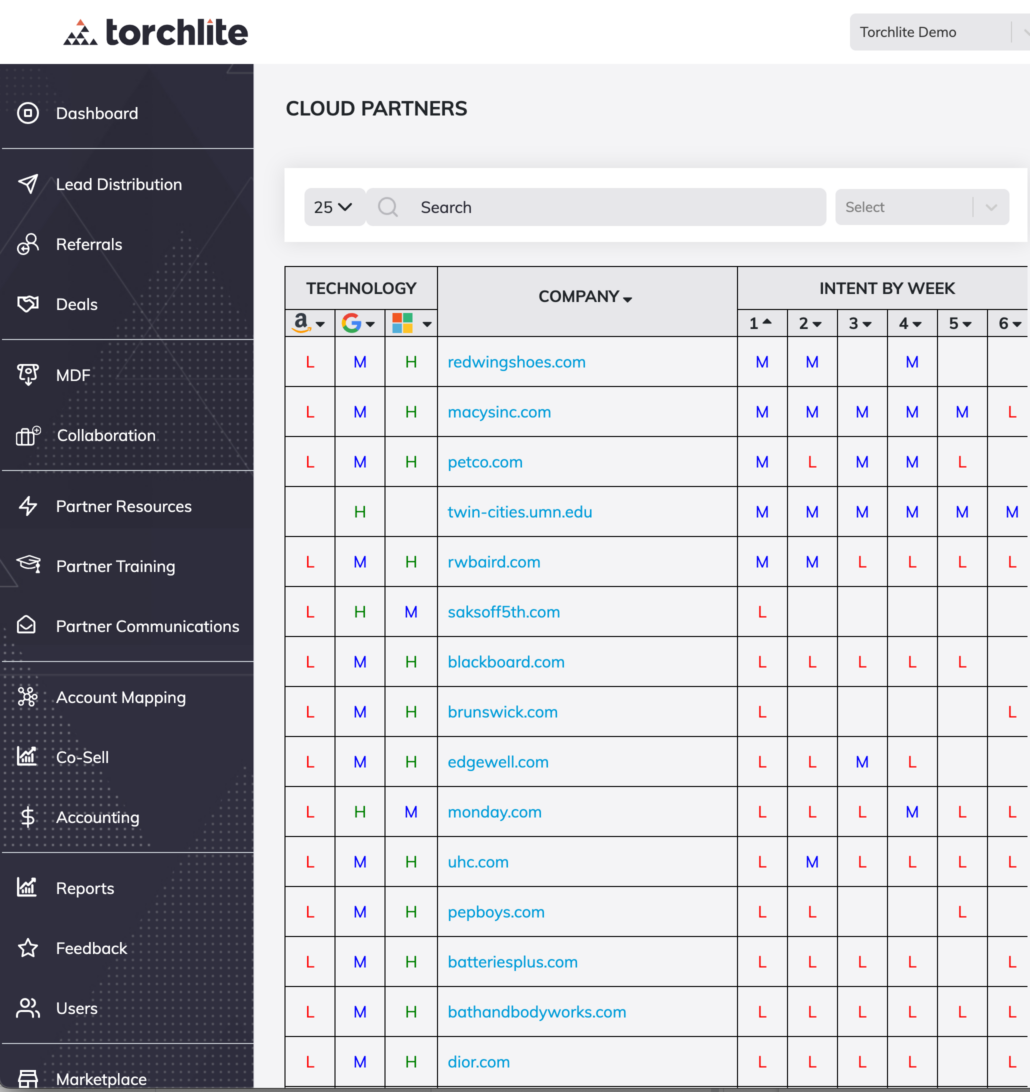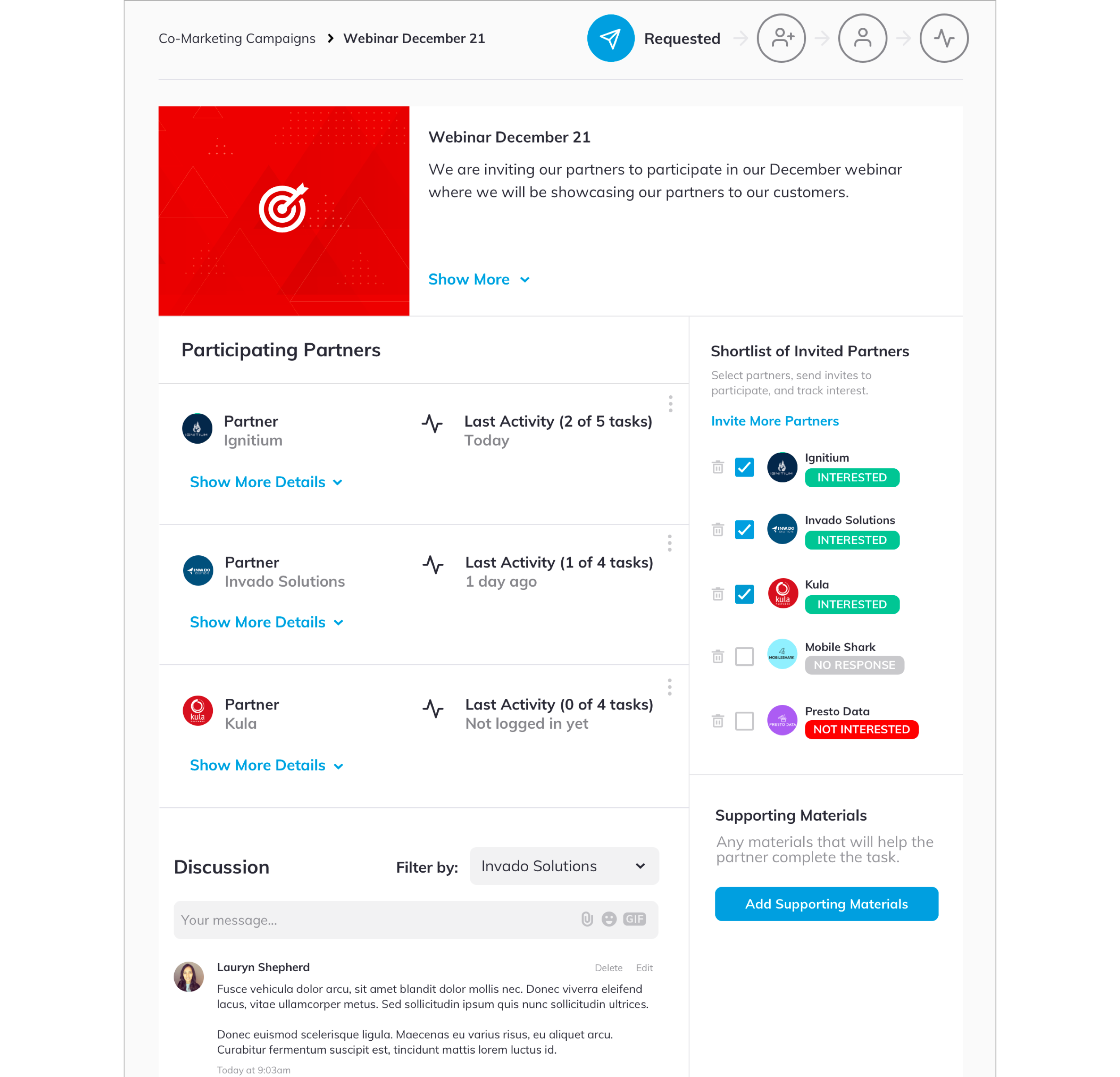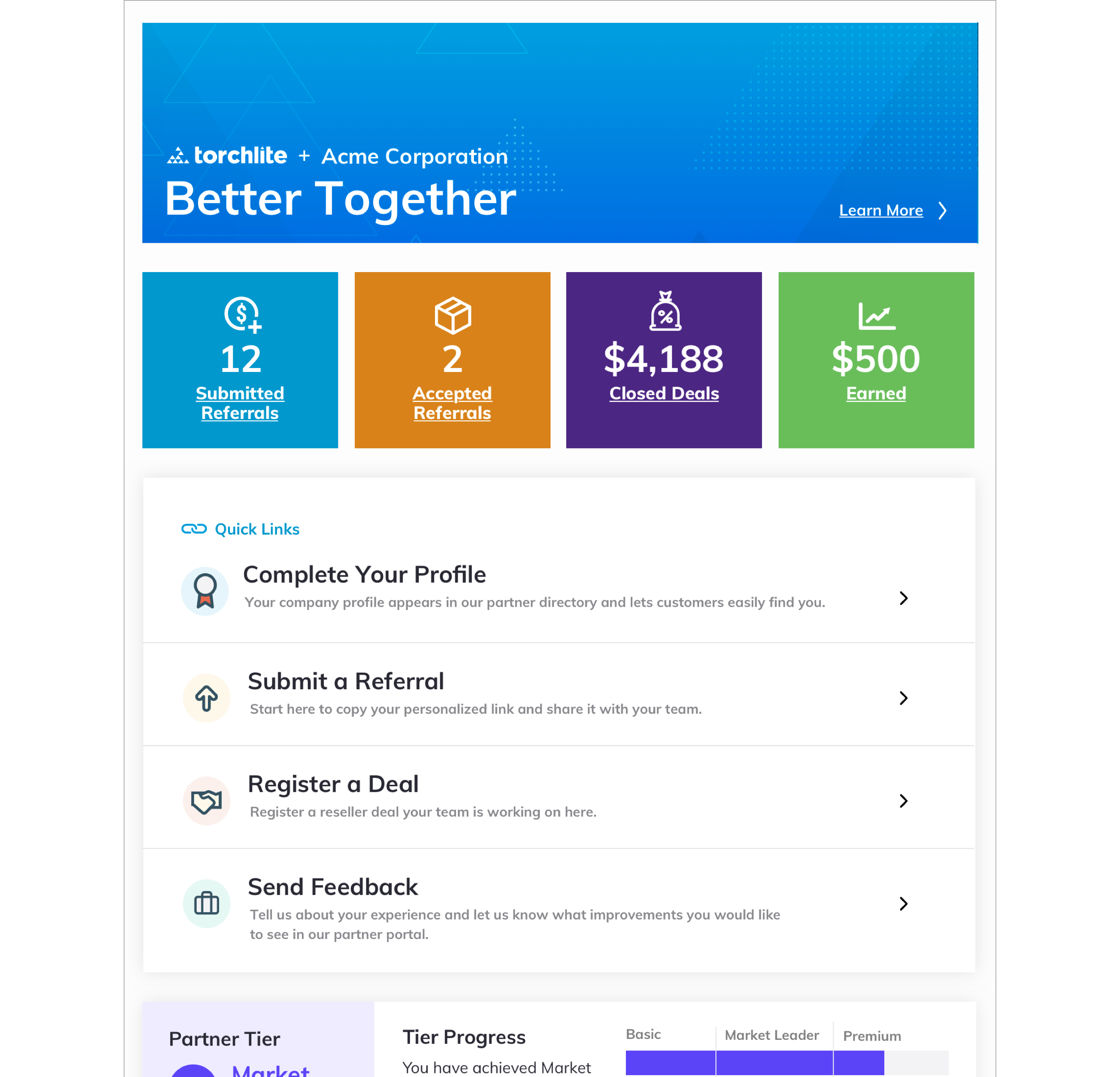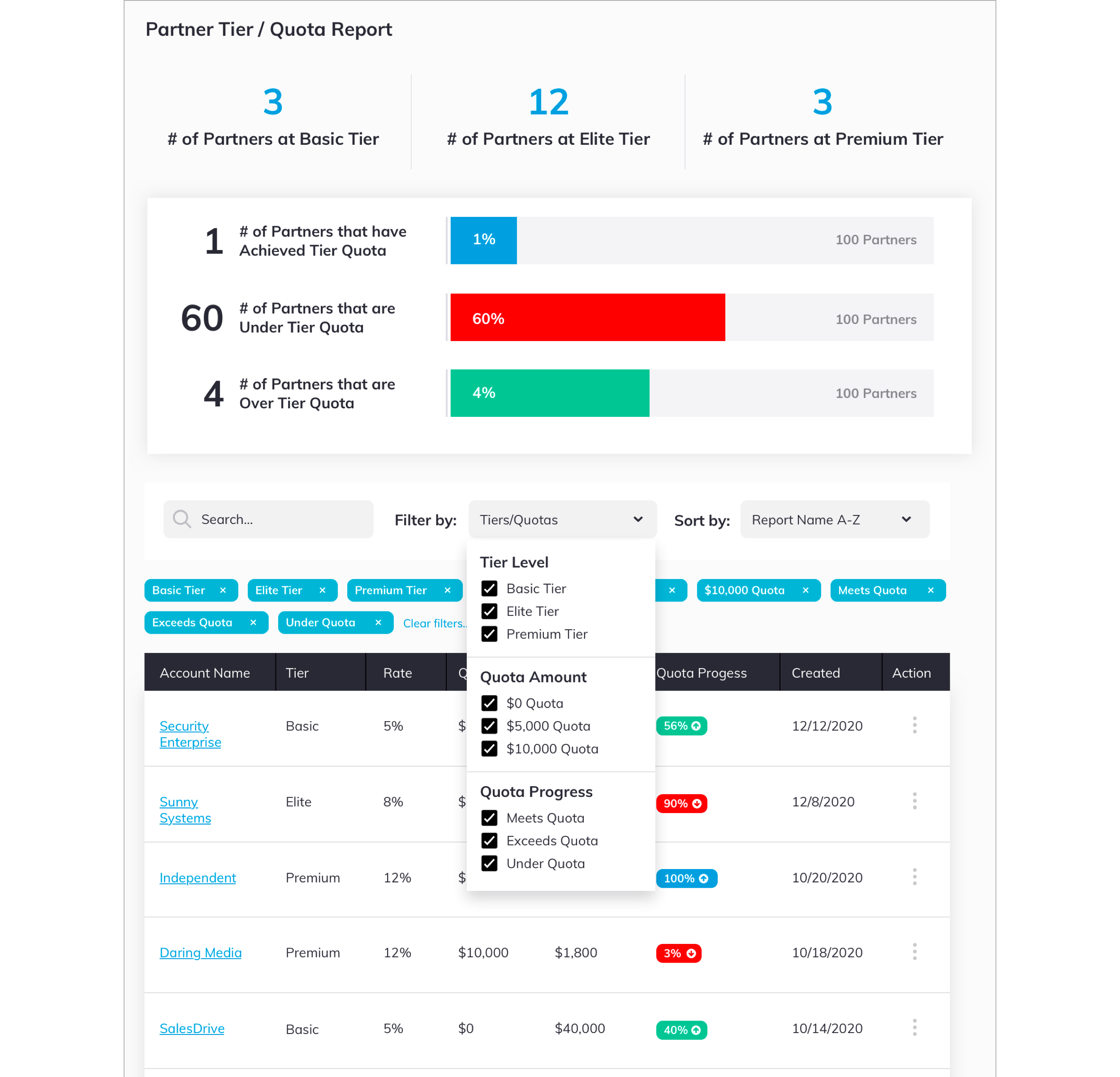Cloud Marketplace Platform
Today, most businesses understand that getting their software products and services onto cloud marketplaces is critical to their success. Enterprise organizations needing cloud-based applications will consistently look to digital storefronts like AWS, Azure, or Google Cloud to find what they need. However, listing, selling, and managing applications on various cloud marketplaces can be challenging, with each marketplace having its own rules, regulations, and technical specifications that need to be followed. Additionally, managing multiple marketplaces can be time-consuming and requires significant resources to keep track of sales, customer support, and updates. Furthermore, different pricing models may be needed for each marketplace, further increasing the complexity of the whole process.
These complexities have given rise to the need for cloud marketplace management. Cloud marketplace management consists of the strategic oversight of all the operational aspects of selling software and services on the major cloud marketplaces. The goal is to leverage the marketplaces to maximize revenue using the most efficient processes. To get the most out of these cloud-based distribution channels, companies need to be engaged in a number of management activities, including:
- Optimizing product listings
- Managing transactions
- Ensuring compliance with marketplace requirements
- Engaging Cloud sales reps for Co-sell opportunites
The biggest problem that many businesses face right now is that doing all of this takes valuable time and resources. This is where a cloud marketplace platform comes in. A cloud marketplace platform takes all the challenges of managing your sales across these marketplaces and provides a single source of truth. It’s a solution for streamlining the process of onboarding, listing, and transacting on several cloud platforms simultaneously. Some, but not all, platforms will also provide analytics, reporting, and customization – enabling you to refine your strategies across multiple channels.
The best cloud marketplace platforms will include a variety of features, such as:
- Centralized Dashboard To Manage All Marketplaces
- Pricing Management
- Marketing Material Support To Streamline Deals With Cloud Buyers
- Deal prioritization based on Intent signals
- Integration With Other Tools Like Your CRM To Simplify Seller Adoption
This kind of platform can also facilitate co-selling with cloud partners and the tracking and management of cloud marketplace private offers, including cloud partner private offers (CPPO). Over the last several years, companies have discovered just how powerful cloud marketplaces can be for getting their products and services in front of buyers. Read on to discover how a cloud marketplace platform can give sellers the competitive edge they need to win.
What is the Cloud Marketplace?
A cloud marketplace can refer to any application marketplace that includes deployment tools, analytics, and management software. There are many cloud providers and marketplaces out there, depending on your needs and preferences.
Exploring the different cloud marketplaces out there can help you decide which one is best for you and your organization. Ultimately, when selecting a cloud marketplace, your business should consider the following elements:
- What programming languages do your applications use
- How easy the marketplace tools are to learn and use
- What are the costs like
- What extra support your business might require
It’s important to consider these factors when weighing your options. However, the most lucrative route for many companies is to utilize all the major cloud marketplaces for their products and services. Here is a list of the main cloud marketplaces that are currently available:
Amazon Web Services Marketplace
The AWS Marketplace is the cloud-based digital storefront from Amazon Web Services. It offers a wide range of products designed to run on the AWS cloud. As one of the largest marketplaces for cloud-based software and services, AWS provides a simple and efficient way for customers to discover, purchase, and deploy software that meets their business needs. It also offers flexible pricing options, including hourly, monthly, and annual billing, as well as free trials and bring-your-own-license (BYOL) options. Some of the additional features that make this marketplace stand out include:
- Broad software selection, from popular business applications to security solutions
- SaaS and Amazon Machine Image (AMI) offerings
- Private Marketplace
- Consolidated Billing
- Integration with AWS services
- Seller Private Offers
- Container and Serverless Solutions
- Enterprise contracts
Microsoft Azure Marketplace
Another popular marketplace is Microsoft Azure Marketplace. Microsoft Azure was introduced in 2008, codenamed “Project Red Dog” at the time. It was fully released in 2010 as Windows Azure, then rebranded as Microsoft Azure in 2014.
This platform is a public cloud computing platform ideal for SaaS applications and solutions that rely on Microsoft technology. The main services that are available are:
- Analytics
- Storage
- Networking
- Virtual computing
- Mobile services
- Data management
Azure is a good choice for organizations with Paas, Iaas, and Saas needs. It includes a huge array of solutions and services and is known for its speediness and affordability. If your cloud-based offering is designed to benefit over 1 billion people using Microsoft products or services, you should seriously consider getting your product listed on the Azure marketplace.
Google Cloud Platform Marketplace
The Google Cloud Marketplace is a digital storefront where businesses and developers can find a wide range of pre-packaged, ready-to-deploy applications, APIs, and other cloud services that run on the Google Cloud Platform. It includes features like:
- Diverse solutions: The marketplace offers a variety of solutions, including software, machine learning models, data analytics tools, developer tools, and more.
- Ease of deployment: Users can quickly deploy applications and services directly from the marketplace to their Google Cloud environment.
- Integration with Google Cloud services: Solutions available in the marketplace are often designed to seamlessly integrate with Google Cloud services, making it easier for businesses to build comprehensive and integrated cloud solutions.
Salesforce
The Salesforce AppExchange provides businesses with a platform to discover solutions that extend the functionality of the Salesforce platform. It includes a diverse range of apps for sales, marketing, customer service, analytics, and more, allowing businesses to customize their Salesforce implementations without the need to build their own solutions from the ground up.
The Salesforce AppExchange also offers many apps that seamlessly connect with other business tools and systems. This helps to streamline workflows across different departments and contributes to increased efficiency and productivity.
Oracle Cloud
The Oracle Cloud marketplace is a centralized hub where businesses can find a wide range of applications and services that run on the Oracle Cloud infrastructure.
Here are some of the key features of the Oracle Cloud marketplace:
- Comprehensive solutions: The Oracle Cloud Marketplace hosts a wide range of applications and services developed by Oracle and third-party vendors in domains like database management, analytics, security, developer tools, and much more.
- Seamless integration: Solutions available on the Oracle Cloud Marketplace are designed to integrate fully with the Oracle Cloud ecosystem.
- Community collaboration: The Oracle Cloud Marketplace also helps to foster collaboration and community engagement. Businesses can connect with developers and other users to share insights related to utilizing solutions on the Oracle Cloud.
IBM Cloud
The IBM Cloud marketplace is a central digital location where businesses can explore a diverse range of tools and solutions that leverage the IBM Cloud infrastructure.
- Varied offerings: The IBM Cloud Marketplace features a comprehensive selection of solutions, including software, services, and APIs developed by both IBM and third-party vendors.
- Scalability: IBM Cloud infrastructure allows businesses to scale their computing resources based on demand.
- Hybrid cloud capabilities: IBM is known for its focus on hybrid cloud solutions, allowing businesses to integrate on-premises infrastructure with cloud services.
How Big is the Cloud Marketplace?
The cloud marketplace makes up a huge global industry. According to Canalys Research, the total market value of cloud marketplaces is expected to reach $45 billion by 2025 with a CAGR of 84%. The expected future is also bright with predictions exceeding a valuation of $150 billion USD by 2027. Cloud computing represents a lucrative and monumental marketplace, a testament to the undeniable impact it has had on the global business landscape.
Several notable brands operate cloud marketplaces, such as Amazon Web Services (AWS), Microsoft Azure, and Google Cloud Platform. These three companies made up nearly two-thirds of all cloud computing revenue in Q2 of 2023, with Amazon Web Services remaining the largest and most profitable.
Each of these platforms offers a vast array of services, from computing power and storage to machine learning and analytics, catering to the diverse needs of businesses across global industries. Cloud computing has exploded in popularity and continues to grow and be deployed as organizations of all sizes recognize the benefits of scalability, cost-efficiency, and global accessibility that they offer.
The influence of cloud marketplaces extends beyond just infrastructure and platform services to include SaaS offerings. Typical SaaS offers usually consist of applications for collaboration, customer relationship management (CRM), Customer success (CS), enterprise resource planning (ERP), and others unique to certain industries or operations.
There are a variety of services and solutions available through cloud marketplaces, with offerings constantly expanding as the industry evolves and grows. This expansion is fueled by a variety of elements, including the increasing demand for data analytics and the development of technologies such as artificial intelligence(AI) and the Internet of Things (IoT).
Because services and solutions are always being expanded and tailored, the size of cloud marketplaces is dynamic and ever-evolving. As businesses across the globe continue to migrate their operations to the cloud, this marketplace will continue to find ways to accommodate new requirements and meet emerging challenges. One example of this growth is the COVID-19 pandemic. This global event further accelerated the adoption of cloud services as organizations sought flexible, remote-friendly solutions (such as Zoom, which is supported by Amazon Web Services).
The cloud marketplace is crucial for supporting organizations globally and in shaping the global technological landscape. Its dynamic, expansive size is not just a reflection of its market valuation but also an indication of the profound ways in which businesses leverage cloud services to drive innovation and increase their competitiveness. As technology continues to advance, the cloud marketplace is poised to play an even more central role in powering the digital future.
What is the Future of Cloud Marketplaces?
Cloud marketplace platforms have become pivotal as businesses seek to expand their digital presence and offerings. The rise of remote work and globalization is another key driving force in the expansion of the cloud computing industry. Their future lies in expanding and enhancing the services offered on them as vendors discover new and innovative solutions to the needs of businesses.
The best cloud marketplace platforms will increasingly focus on providing a comprehensive one-stop-shop where businesses can procure infrastructure resources and access a myriad of specialized applications and services tailored to their unique needs. The concept of a one-stop shop for all things digital simplifies the complex landscape of technology adoption, providing centralization and easy integration and deployment as well as payment.
There are many cloud marketplace platform examples out there. The main marketplaces today include platforms such as Amazon Web Services (AWS), Microsoft Azure, and Google Cloud Platform (GCP). All of these marketplaces have continuously stayed competitive, developing new solutions and offerings that help them remain both trustworthy in the eyes of their customers and sustainable long-term. This is largely because these platforms have continuously evolved, offering a vast array of services, from computing power to artificial intelligence, analytics, and other key solutions. However, in the future, it is likely more niche cloud marketplaces catering to specific industries or technologies may emerge. As businesses demand more specialized solutions, smaller players could carve out spaces where they excel, providing industry expertise and customized cloud solutions.
Security is likely to remain a paramount concern in the future, especially as AI continues to be developed and shapes the digital future and the internet. As businesses continue to entrust sensitive data to the cloud, the emphasis on robust security measures will only intensify. Cloud marketplace platforms will need to continue to invest heavily in advanced security protocols and encryption to instill confidence in businesses and ensure the protection of their critical assets. The future of cloud marketplaces will likely harness multiple advanced technologies (such as AI-driven threat detection or blockchain-based security frameworks) to address security threats and protect operations.
The best cloud marketplace platform in the future will likely be characterized by its ability to offer a seamless and integrated experience. User interfaces will become more intuitive, allowing businesses to navigate and leverage the full spectrum of services effortlessly. Machine learning algorithms will play a pivotal role in predicting user preferences, optimizing resource allocation, and enhancing the overall user experience. The best cloud marketplace platform will not just provide services but will also focus on partnerships. A strategic partner can offer insights, give recommendations, and share their experience to assist and support businesses in their decision-making processes.
The future of cloud marketplaces is intricately tied to the broader technological landscape, so cloud marketplaces will need to evolve alongside these advancements in order to stay on pace with them. As businesses continue their digital journey, cloud marketplace platforms will serve as the cornerstone of their technological endeavors.
From specialized niche players to interoperability, enhanced security measures, and seamless user experiences, the trajectory of cloud marketplaces is poised to be both dynamic and innovative. The best cloud marketplace platform in the future will not only meet the current needs of businesses but will also anticipate and pave the way for the evolving landscape of technology and industry requirements.
What are the Benefits of Cloud Marketplace?
Utilizing a cloud marketplace platform offers an array of advantages that propel businesses into the realm of efficiency, scalability, and innovation. Here, we delve into 10 compelling benefits of leveraging these platforms, also known as cloud marketplaces.
1. Cost-Efficiency
Cloud marketplaces provide a cost-effective solution for businesses by eliminating the need for hefty upfront investments in hardware and infrastructure. With a pay-as-you-go model, companies can scale resources up or down based on their needs, ensuring optimal resource utilization and cost management.
2. Global Accessibility
One of the hallmark advantages of cloud marketplaces is their ability to provide global accessibility. This enables businesses to reach a broader audience without physical infrastructure constraints. Companies can deploy their applications and services globally, reaching customers and clients wherever they are located, fostering a truly borderless business environment.
3. Rapid Deployment
Cloud marketplaces facilitate rapid deployment of applications and services, allowing businesses to bring products to market swiftly. This accelerated deployment is particularly beneficial in dynamic industries where time-to-market is critical. Through the cloud marketplace, developers can access a plethora of pre-configured solutions, reducing the time and effort required for implementation.
4. Scalability
The scalability offered by cloud marketplaces is a game-changer for businesses experiencing fluctuating workloads. Whether there’s a sudden spike in demand or a need for additional resources, companies can seamlessly scale their operations up or down. This elasticity ensures that businesses can adapt to changing circumstances without the need for substantial infrastructure adjustments.
5. Diverse Service Ecosystem
Cloud marketplaces host a diverse range of SaaS offerings and solutions. These include services, applications, and tools offered by various vendors. This diversity enables businesses to choose from a wide range of solutions that best fit their specific needs. Whether it’s storage, analytics, or machine learning, the cloud marketplace provides a one-stop shop for accessing cutting-edge technologies without the hassle of managing multiple vendor relationships separately.
6. Enhanced Security Measures
Security should be a top concern for any business, especially any processing payment information or handling sensitive information. Cloud marketplaces come equipped with robust security measures and compliance protocols, which allow for secure cloud integration and peace of mind.
Cloud marketplace platforms employ advanced encryption, access controls, and monitoring tools, ensuring the confidentiality and integrity of sensitive data. This centralized approach to security allows businesses to focus on their core activities while entrusting the protection of their data to experts.
7. Continuous Innovation
Another great perk of cloud marketplaces is that they serve as hubs for innovation, providing businesses access to the latest technologies and updates. With cloud marketplaces, vendors are able to regularly introduce new features, improvements, and integrations to businesses. These SaaS solutions allow companies to stay at the forefront of technological advancements without the burden of managing complex upgrades.
8. Streamlined Collaboration
Cloud marketplaces also help fuel and streamline team collaboration. This is made possible through communication tools and seamless interaction solutions, regardless of physical location(s). These communication tools and applications enable real-time collaboration on projects, file sharing, and communication through integrated messaging systems. All of these applications can help contribute to increased productivity and efficiency by automating and scaling workflows and supporting communication.
9. Automated Maintenance and Updates
Also, cloud marketplaces can often help massively simplify the task of system maintenance and updates, which can often be quite complicated. Automated processes handle routine maintenance tasks, reducing downtime and minimizing the impact on operations. This allows businesses to focus on their core activities without being burdened by the complexities of managing and maintaining their infrastructure.
10. Data Redundancy and Disaster Recovery
Cloud marketplaces inherently provide robust data redundancy and disaster recovery mechanisms. Data is typically stored across multiple geographically dispersed servers, ensuring that even in the event of a hardware failure or a catastrophic event in one location, data remains accessible and intact. This inherent redundancy minimizes the risk of data loss and enhances the overall reliability of the infrastructure.
The benefits of leveraging a cloud marketplace are multifaceted, offering businesses a strategic edge in today’s competitive landscape. From cost savings to global accessibility, rapid deployment, and enhanced security, these platforms are integral to modernizing and future-proofing businesses across various industries. The keyword “also cloud marketplace” encapsulates the pivotal role these platforms play in reshaping the business landscape, offering a comprehensive suite of services that cater to the diverse needs of organizations navigating the digital era.
Cloud Marketplace Platform
Cloud marketplace platforms provide the centralized hub businesses need to manage their products, pricing, and transactions across multiple cloud marketplaces. They streamline operations, reduce complexity, and save valuable time when compared to manually managing each marketplace. Additionally, such platforms can give businesses greater visibility into sales performance, customer behavior, and market trends across the different marketplaces. This data-driven insight enables more informed decision-making and strategy adjustments.
Amazon states in their documentation that it can take 2-4 weeks of calendar time to approve a product for listing on their marketplace. This can, of course, take longer for more complex products. They require a completed product request at least 45 days in advance of any planned events or releases. The process often requires multiple iterations and adjustments to complete. Multiply all this work across multiple marketplaces, and you get a better picture of just how complex and time-consuming it is to list a product on a cloud marketplace.
Listing, however, is only the first step in managing and optimizing sales and transactions to maximize revenue. Companies cannot afford to waste their valuable time and money manually going through these processes each and every time they release a new product on each and every marketplace. There is a better way. Cloud marketplace platforms can help optimize your cloud marketplace management and ensure that you achieve success on each and every marketplace you sell products and services on.
Torchlite’s Cloud Marketplace Platform software is tailor-made to empower you on this collaborative journey. It provides the tools and insights needed to manage your cloud partner network effectively, ensuring that you make the most of these valuable relationships. With Torchlite, you can streamline partner deal sharing, and optimize collaboration, all while unlocking the true potential of channel partnerships. With Torchlite in your hands, you’ll outshine the competition with the power of your partnerships. Book a demo today and see for yourself what a true Cloud Marketplace Platform can do for your business.






